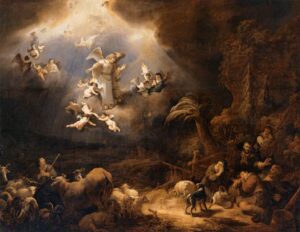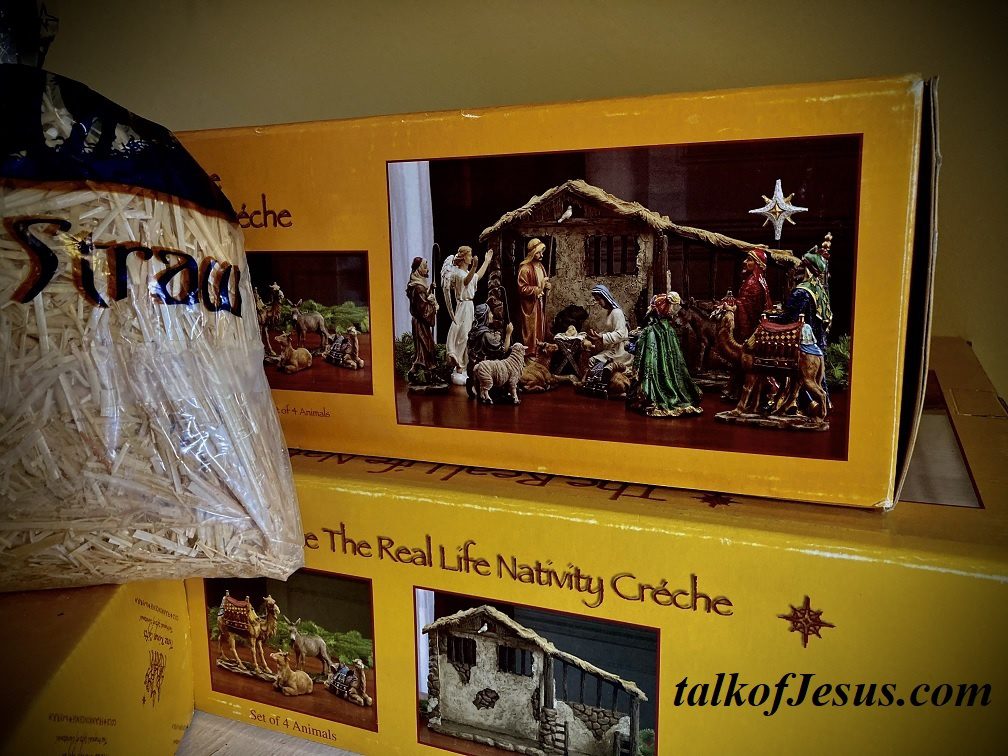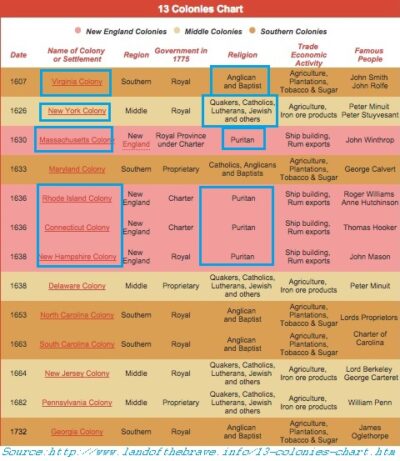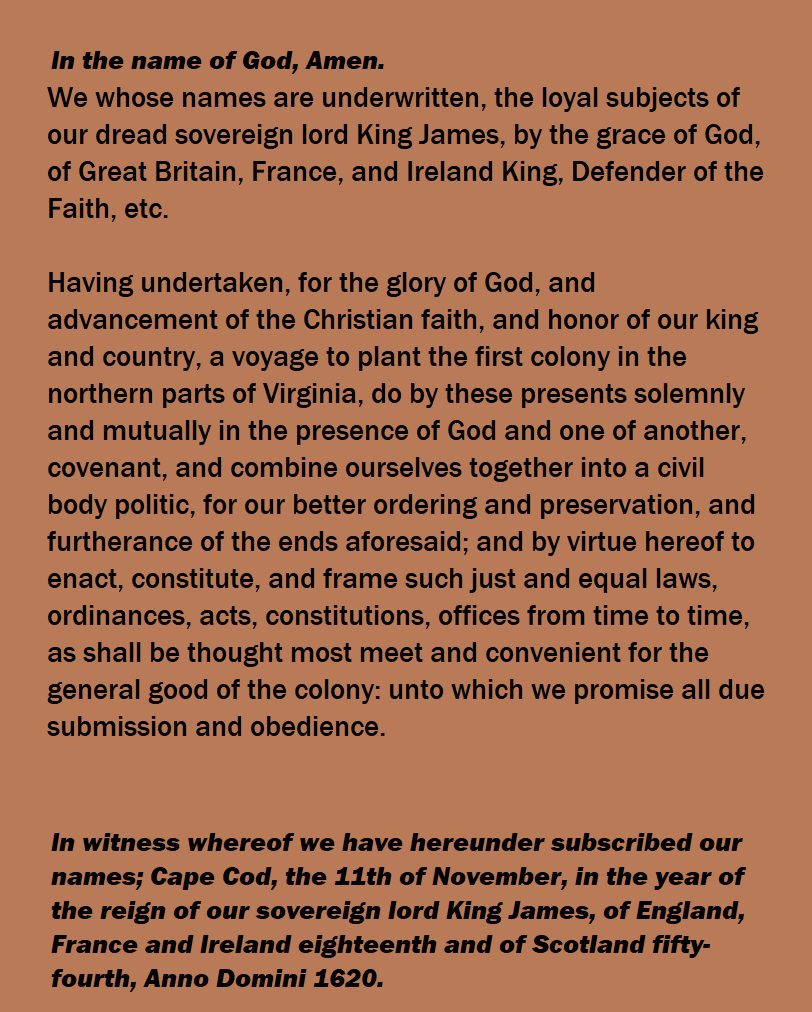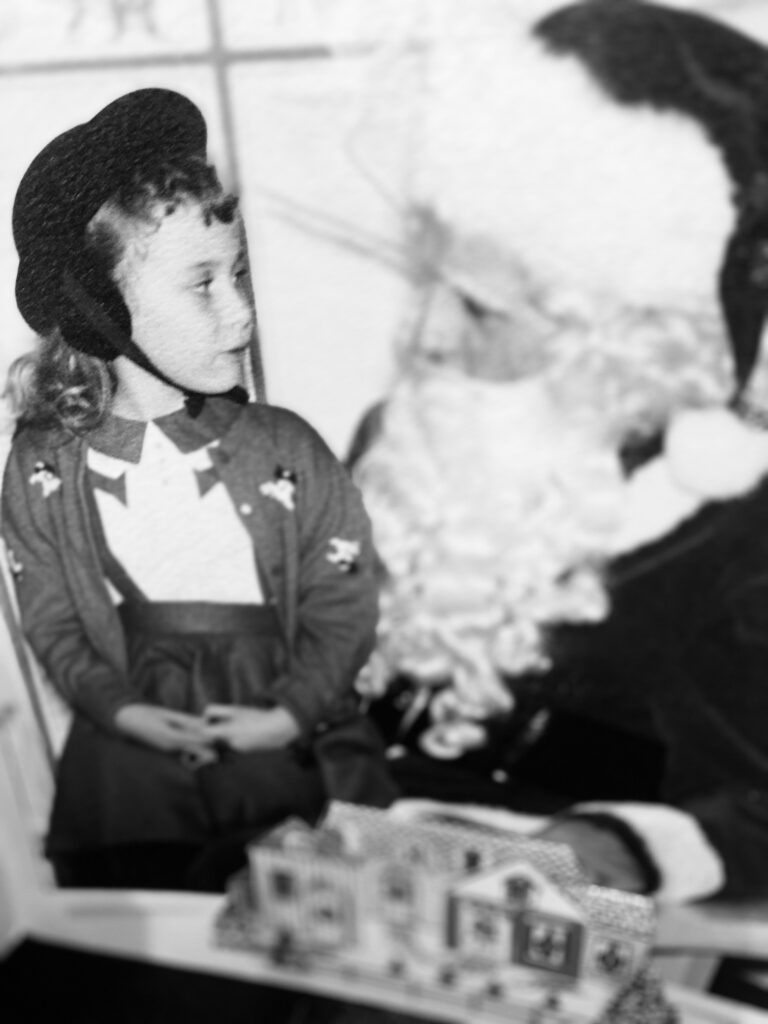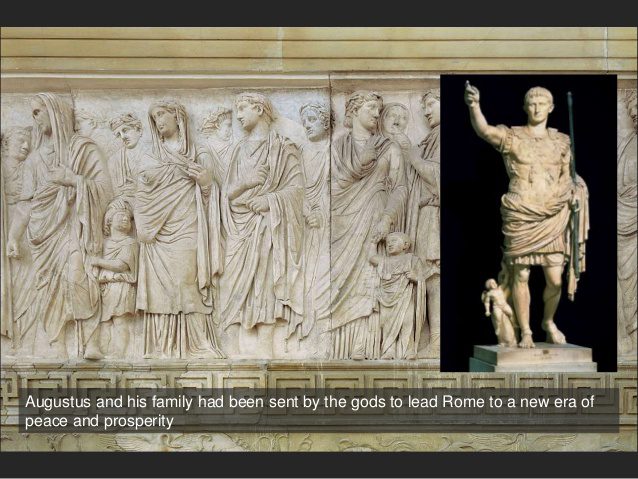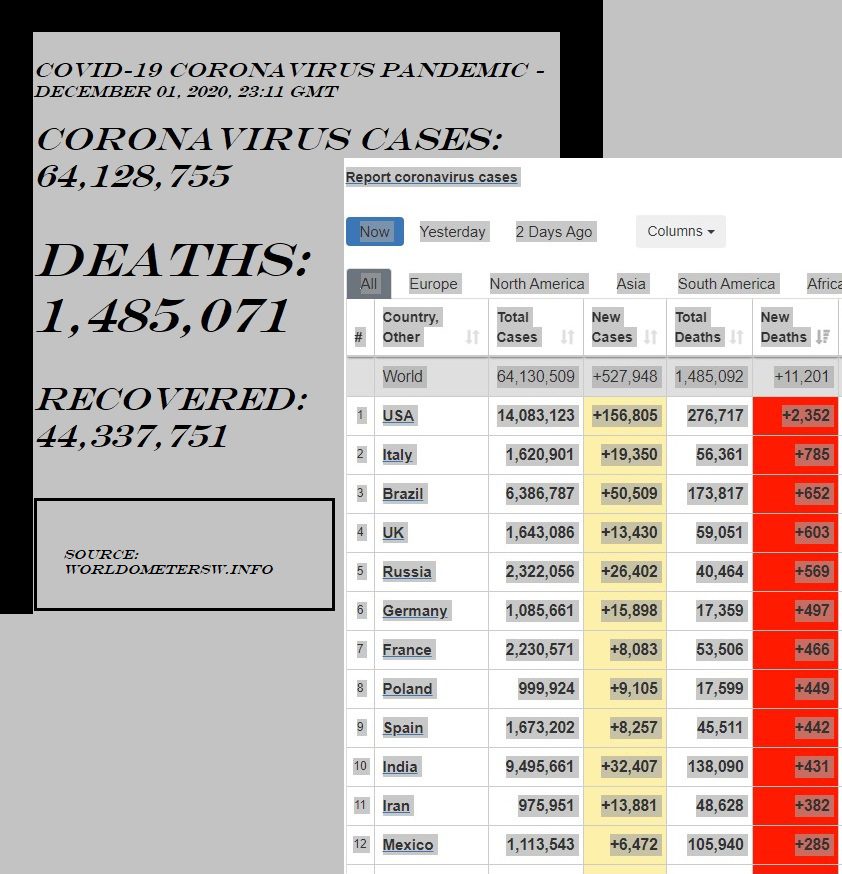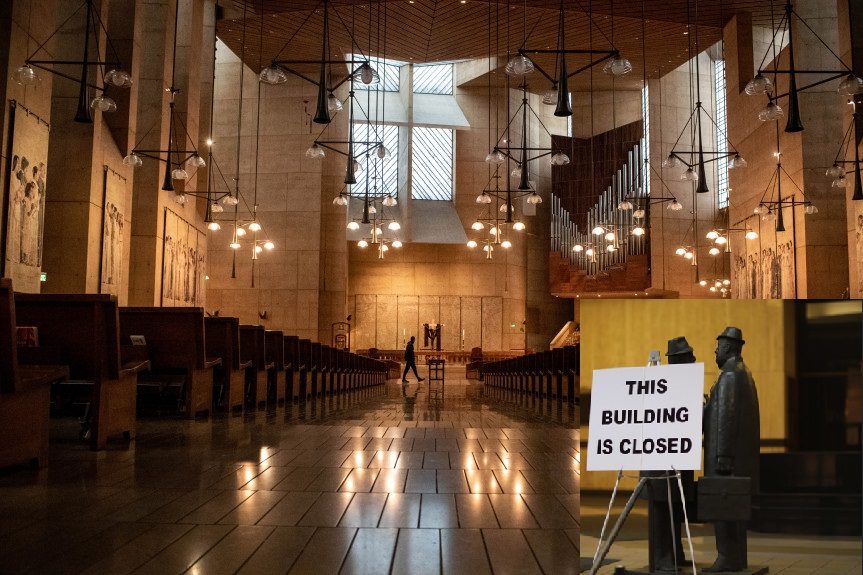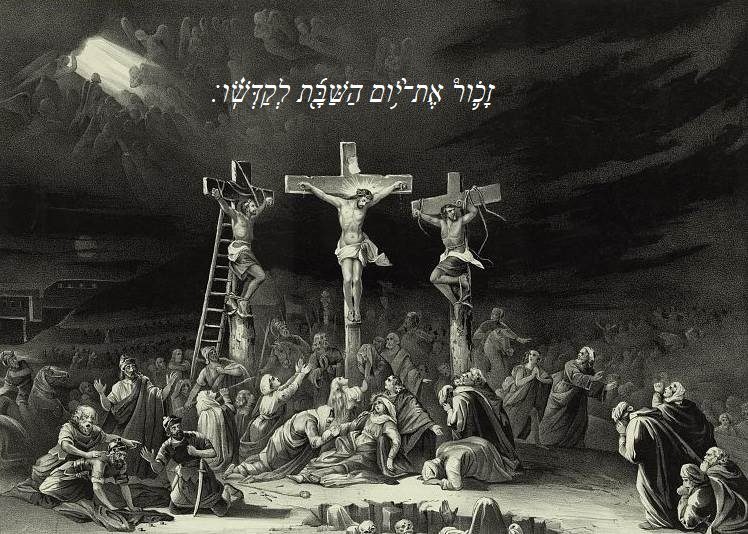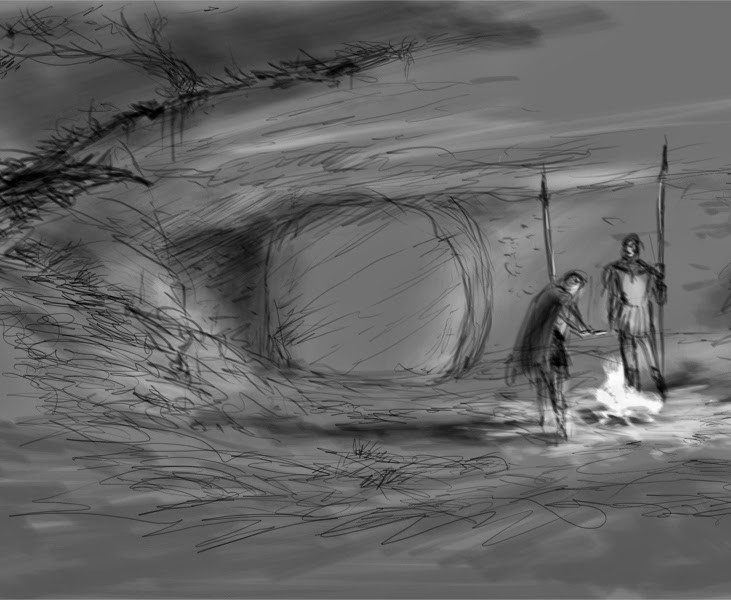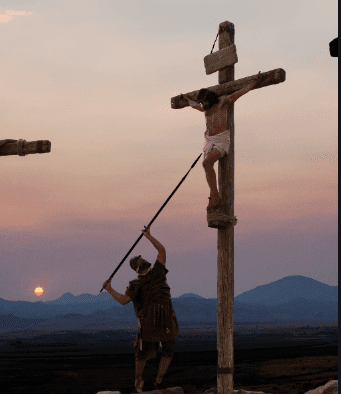He IS born in a manger
The baby Jesus, born of the virgin Mary, remains a fond and distant memory in our annual celebrations of the Christ-Mass Holy-days.
Not surprisingly (as I recall that this year is the two-thousand twenty-fifth year of our Lord , as Christians used to call it in the days of Advent Calendars) I discovered my first CHRISTMAS EVE post from AD 2013,
It’s overall place in our current SERIES on The Apostles’ Creed is most fitting.
His timeline of three years of teaching during a mere 30 years in the world as the Son of Man places relevance on the brevity of both His and our mortal lives.
Roger Harned – author, administrator and founder of TalkofJesus.com
Just a few introductory Scriptures here, followed by my original Christmas Eve post of AD 2013. - RH
He is both Shepherd & a sheep for the Sacrifice
Thou hast given us like sheep appointed for meat; and hast scattered us among the heathen.
Psalm 44:11 KJV
Is that not the lot of 2025 CE Christians as well?
Many Christians know this next one from the Gospel:
All we like sheep have gone astray;
we have turned every one to his own way;
and the LORD hath laid on him the iniquity of us all.
He was oppressed, and he was afflicted,
yet he opened not his mouth:
he is brought as a lamb to the slaughter..
Isaiah 53:6-7a KJV
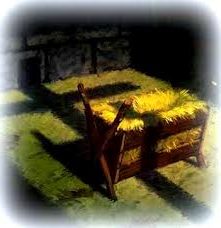
December 24, 2013
LORD, thou hast heard the desire of the humble: thou wilt prepare their heart, thou wilt cause thine ear to hear:
To judge the fatherless and the oppressed, that the man of the earth may no more oppress.
Gospel of the Birth of Christ Jesus
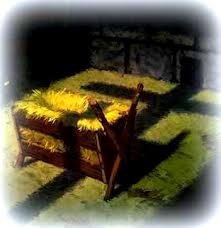
John the Baptist Prepares the Way
1 The beginning of the gospel of Jesus Christ, the Son of God.
2 As it is written in Isaiah the prophet,
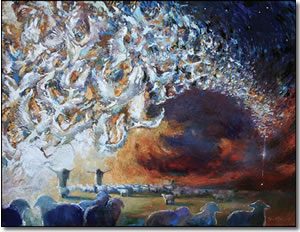
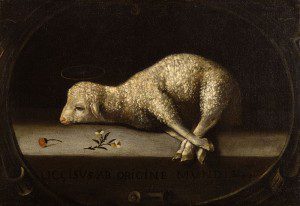

“Behold, I send my messenger before your face,
who will prepare your way,
3 the voice of one crying in the wilderness:
‘Prepare the way of the Lord,
make his paths straight,’”
Before John the messenger of the Messiah, prior to Isaiah and the Prophets calling us to repentance and announcing the coming of the Lord;
Before David and the Kingdom of Israel, before Moses and the exodus of God’s chosen from captivity;
Before Moses and the Law and Commandments;
Before Jacob and Isaac and Abraham (for Jesus said: Before Abraham was, I AM.
Before Adam, before man and before woman, before earth and before the heavens:
Thus, God IS and did send unto mankind Himself His only Son, a babe in a humble manger, born of a humble woman betrothed of a humble man, for the work of our redemption, a sheep of sacrifice on the Cross for our salvation. He IS the resurrection and the life.
Are we not prisoners of our many sins? Do our hearts not suffer in the dungeons of our darkness. Is God not distant from our difficulties and silent in our sufferings?
It was no different 2013 years ago. Yet the beginning of the story of the babe in the manger begins before the beginning.
He has sent me to proclaim liberty to the captives – Luke 4:18
In the beginning, the Holy Spirit was with God. The Holy Spirit descended on Christ Jesus, Son of God and He, a man with us, taught us once more the surpassing love and grace of God our Father in heaven.
Before Jesus’ ministry and teaching in the Holy Spirit, before the Son of Man was born in a manger in Bethlehem, He IS God in creation. Now a savior is come. He IS God with man: like every man, a babe, a child, a youth, a young man, and finally a mature man teaching the very word of God. He IS the very word of God! Jesus’ teaching IS the only truth, the whole truth and nothing but the truth. Yet by His own love and the great grace of God our Father, He IS the Lamb of sacrifice for our sins.
Think of Jesus descended into the womb of Mary and born to be worshiped in a lowly manger in this way:
The Word Became Flesh
1 In the beginning was the Word, and the Word was with God, and the Word was God. 2 He was in the beginning with God.
Jesus, Son of Man, born of Mary, the Incarnate spoken Word of God the Father. He was with God the Father and God the Holy Spirit in the beginning.
3 All things were made through him, and without him was not any thing made that was made.
Genesis 1:
And the Spirit of God was hovering over the face of the waters.
3 And God said, “Let there be light,” and there was light.
The Word was with God, and the Word was God.
Jesus speaks to creation as the Word taught us.
4 In him was life, and the life was the light of men.
Genesis 1: 26 Then God said, “Let us make man in our image, after our likeness.
In the image and likeness of Jesus we were made. In the beginning, adam (man) was without sin, as Jesus, as God: Holy and separated from sin, like the darkness is divided from the light.
5 The light shines in the darkness, and the darkness has not overcome it.
Here is revealed the identity of the babe in the manger: Jesus, heralded by angels and worshiped by shepherds and wise kings; Jesus, the babe smuggled into Egypt by Joseph to escape the sword of Herod; Jesus who would return to Nazareth of Galilee announced by John the Baptist, greatest of all Prophets.
9 The true light, which gives light to everyone, was coming into the world. 10 He was in the world, and the world was made through him, yet the world did not know him.
11 He came to his own, and his own people did not receive him. 12 But to all who did receive him, who believed in his name, he gave the right to become children of God, 13 who were born, not of blood nor of the will of the flesh nor of the will of man, but of God.
By His Light and the cloud of His glory He led His own people from the slavery of Egypt to His land of promise. By His own Word He proclaimed His Law of holiness and light for the people of His promise.
God’s own rejected God as a people of God; therefore God came unto His own and also to those who were not His own as a light to the gentiles, to all nations and all peoples.
All who will believe in the only Son of God and truly follow the will of God have become sons and daughters of God, adopted into the household and heart of His eternal life and overflowing love.
14 And the Word became flesh and dwelt among us, and we have seen his glory, glory as of the only Son from the Father, full of grace and truth.
Unto us a child is born, a son of man, the Son of God. His glory was again witnessed by His Apostles and His righteousness seen by all.
15 (John bore witness about him, and cried out, “This was he of whom I said, ‘He who comes after me ranks before me, because he was before me.’”)
16 For from his fullness we have all received, grace upon grace. 17 For the law was given through Moses; grace and truth came through Jesus Christ.
18 No one has ever seen God; the only God, who is at the Father’s side, he has made him known.
The Birth of Jesus Christ
6 And while they were there, the time came for her to give birth. 7 And she gave birth to her firstborn son and wrapped him in swaddling cloths andlaid him in a manger, because there was no place for them in the inn.
The Shepherds and the Angels
8 And in the same region there were shepherds out in the field, keeping watch over their flock by night. 9 And an angel of the Lord appeared to them, and the glory of the Lord shone around them, and they were filled with great fear. 10 And the angel said to them, “Fear not, for behold, I bring you good news of great joy that will be for all the people.
11 For unto you is born this day in the city of David a Savior, who is Christ the Lord. 12 And this will be a sign for you: you will find a baby wrapped in swaddling cloths and lying in a manger.”
13 And suddenly there was with the angel a multitude of the heavenly host praising God and saying,
14 “Glory to God in the highest,
and on earth peace among those with whom he is pleased!”
15 When the angels went away from them into heaven, the shepherds said to one another, “Let us go over to Bethlehem and see this thing that has happened, which the Lord has made known to us.”
Thirty-three years later near Golgotha, then departed from Jerusalem:
Luke 24:
But on the first day of the week, at early dawn, they went to the tomb, taking the spices they had prepared. 2 And they found the stone rolled away from the tomb, 3 but when they went in they did not find the body of the Lord Jesus.
4 While they were perplexed about this, behold, two men stood by them in dazzling apparel. 5 And as they were frightened and bowed their faces to the ground, the men said to them, “Why do you seek the living among the dead? 6 He is not here, but has risen.
12 But Peter rose and ran to the tomb; stooping and looking in, he saw the linen cloths by themselves; and he went home marveling at what had happened.
13 That very day two of them were going to a village named Emmaus, about seven miles from Jerusalem, 14 and they were talking with each other about all these things that had happened. 15 While they were talking and discussing together, Jesus himself drew near and went with them.
Acts 1: 9 And when he had said these things, as they were looking on, he was lifted up, and a cloud took him out of their sight. 10 And while they were gazing into heaven as he went, behold, two men stood by them in white robes, 11 and said, “Men of Galilee, why do you stand looking into heaven? This Jesus, who was taken up from you into heaven, will come in the same way as you saw him go into heaven.”
John 1:1 In the beginning was the Word, and the Word was with God, and the Word was God.
Christ Jesus, from the beginning to the manger, to the cross, to the tomb, to the resurrection, to walking and witness with men fifty more days, to His ascension, to the heavens above, to return on the clouds.
Do you have a relationship with the greatest love of all, that of God our Father in Heaven, Christ Jesus the Lamb of sacrifice for our sins, and the Holy Spirit counselor of the Most High?
The Revelation of Jesus Christ to John 1:8 I am Alpha and Omega, the beginning and the ending, saith the Lord, which is, and which was, and which is to come, the Almighty.
Bow down and worship the Lord our God, Who IS and was and will be: God With Us; Christ Jesus our Lord and Savior.
May the peace of God’s love dwell in your hearts through the grace of our Lord Christ Jesus, who came to a lowly manger that we might bow even lower to worship His Holy Name in this Holy time: Christ Mass, 2013
Amen.
More of how He saves sinners
From our Current SERIES on THE APOSTLES’ CREED
Merry Christ-mas
Comment on Scripture – Share the Gospel


